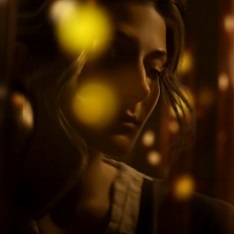ARU Filmmaking Students Secure Double Win
Talented filmmaking students from Anglia Ruskin University (ARU) have won two prestigious regional awards for their ambitious science fiction drama set in the 1800s, in an unforgiving desert version of Earth.
In Eternity’s Grace, a giant steam locomotive roams the brutal planet and grants eternal life to anyone that boards. Residing on it is a sole passenger, Grace, who wanders around its halls until a young man, Adam, arrives to find his parents.
At a recent ceremony, the 13-minute film won the Royal Television Society (RTS) East Student Awards for Drama and also won the Craft award for its camerawork. The film was praised by judges, who called it “brilliantly and confidently executed technically” and also praised the editing, pace, acting and visuals.
The production team consisted of third-year ARU students Yegor Chmilewsky, Guilherme Pires, George Cocea, Christopher Buckehnam, Alex Sole-Leris, Finnan Balfour-Mckie, Nireliain Kayembe, Emily Miles, Arianna Bruno and Alessia Mavakala. Eternity’s Grace is the students’ Graduation film for the BA Film and Television Production course.
Yegor, the director of the film, said:
“I am extremely grateful for the enthusiasm, dedicated, and love of the crew.”
Hans Petch, Senior Lecturer in Film and Television Production at Anglia Ruskin University (ARU), said:
“The set had a wonderfully collaborative atmosphere and the results they achieved were truly jaw-dropping.”

